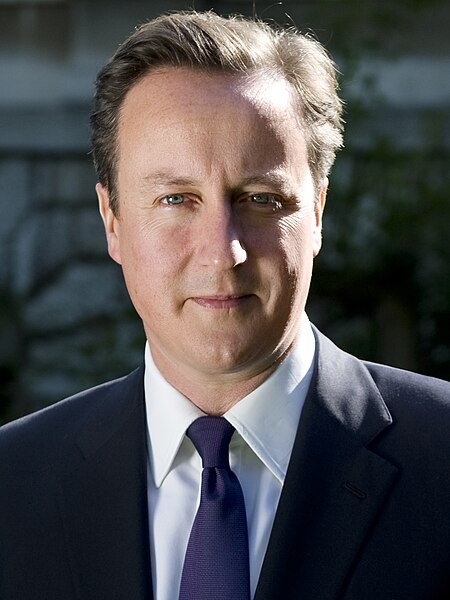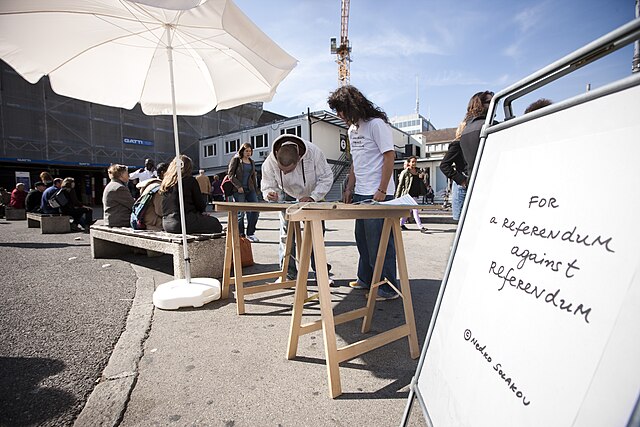2016 United Kingdom European Union membership referendum
On 23 June 2016, a referendum, commonly referred to as the EU referendum or the Brexit referendum, took place in the United Kingdom (UK) and Gibraltar to ask the electorate whether the country should remain a member of, or leave, the European Union (EU). The referendum resulted in 51.9% of the votes cast being in favour of leaving the EU, triggering calls to begin the process of the country's withdrawal from the EU commonly termed "Brexit".
Conservative MP James Wharton introduced a Private member's bill to the House of Commons in 2013 committing the UK to holding a referendum on continued EU membership by the end of 2017 which passed all of its stages in the chamber before it was blocked in the House of Lords early in 2014.
During the 2015 general election campaign, David Cameron promised to renegotiate the terms of the UK's EU membership and later hold a referendum on the subject if a Conservative majority government was elected.
Britain Stronger in Europe campaigners, London, June 2016
Referendum posters for both the Leave and Remain campaigns in Pimlico, London
A referendum is a direct vote by the electorate on a proposal, law, or political issue. This is in contrast to an issue being voted on by a representative. This may result in the adoption of a new policy or specific law, or the referendum may be only advisory. In some countries, it is synonymous with and also known as plebiscite, votation, popular consultation, ballot question, ballot measure, or proposition.
Nedko Solakov's artistic and humouristic project "Référendum against référendums", for the Swiss Sculpture Exhibition Utopics in 2009
Pro-Russian protesters in Odesa, Ukraine, demanding a referendum, March 30, 2014
2015 Greek bailout referendum Demonstration for "NO" vote, Syntagma Square, Athens, Greece
Image: Bulletin référendum Cote d'ivoire 2016








